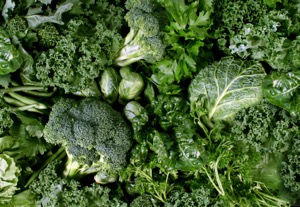Companies embrace creativity when it comes to sustainability

One of the positive effects of the pandemic is increased awareness of the importance of sustainability. And consumers want sustainable products for their pets too. How are manufacturers meeting this need in different parts of the world?
Zoonotic diseases – a result of human activity
There has been mounting evidence suggesting that pandemics are linked to human activity’s impact on nature. The World Wild Fund For Nature argued in June 2020 that the emergence of zoonotic diseases in humans is caused by activities such as deforestation and industrial farming. A report from the United Nations Environment Programme echoed these findings, stating that resource extraction and climate change are among the reasons behind a rising trend in zoonotic diseases.
Prioritising the environment
Even before this research hit the headlines, 25% of the UK population had stated that the environment has become a higher priority for them since the COVID-19 outbreak. Mintel expects the pandemic to fuel a heightened focus on sustainability in the medium to long term too, even after the immediate threat to personal health and household finances has ebbed.
Natural cat litter catching up
Natural cat litter lags behind traditional (clay) options by a wide margin, but it is growing fast. While smaller brands have been active in the natural litter market for years, leading players are tapping into this movement by expanding their product lines. Purina Tidy Cats launched Naturally Strong Litter in March 2020. The litter is formulated with activated charcoal and claims 100% natural performance. Kent Pet Group’s World’s Best Cat Litter uses all-natural compressed corn to provide enhanced odour control.
Meat off the pet menu?
Meat in particular has come under scrutiny in sustainable diets, and 29% of cat and dog food buyers agree that it is good for pets to regularly have plant-based meals. Given this interest in meat reduction, and the nutritional needs of cats and dogs, there is a case for the market to explore alternative sources of protein. While some brands are already looking to insect protein, new technologies should also be considered in the longer term. 30% of UK buyers – and as many as 43% of those aged 16-34 – are interested in pet food made from lab-grown meat.
Vegetarian options are becoming increasingly widespread. In Austria, Vitakraft Veggie Bits Karotte are a 100% veggie, low-calorie snack made of carrots and enriched with parsley. In India, Fresh for Paws Vegetable Stew is home-made with olive oil and fresh vegetables.
Packaging counts
With plastic packaging waste firmly in the public spotlight since 2018, environmentally-friendly packaging claims have been rising, in pet food launches too. Focusing on a company’s green credentials during new product development is vital in the UK now that 66% of dog and cat food buyers state they would choose a brand that uses eco-friendly packaging over one that does not. In China, meanwhile, recyclable features are in the top ten of claims increasingly seen on newly launched products in the pet food market. In Japan, Purina Mon Petit Natural Kiss cat food retails in an environmentally-friendly pack which is said to reduce 6% of plastic waste and approximately three tons of plastic use per year.
While much of the activity has come from packaging using materials suitable for recycling, various brands are looking to go beyond this. For example, while Scrumbles uses plastic-free, compostable paper bags for its treats and snacks range, its wet food comes in white plastic trays to ensure they can be recycled. Along similar lines, insect-based pet food specialist Yora states that its dry food bags are compostable and can be disposed of with food waste. And in a more novel approach, Soopa dog treats packaging calls for pet owners to ‘reuse me as a pooper scooper’.
